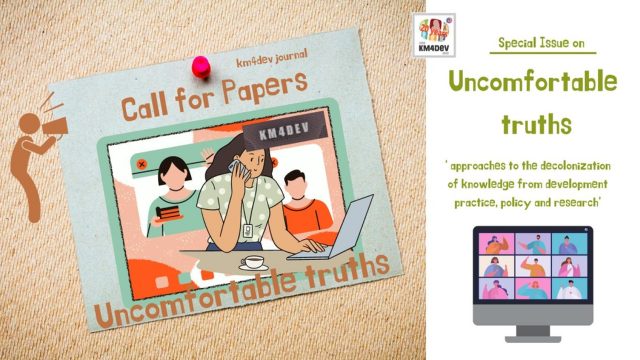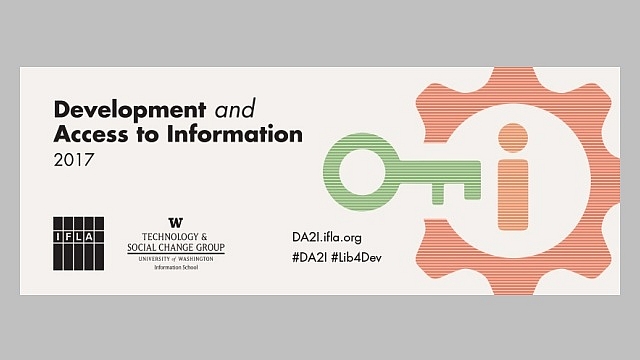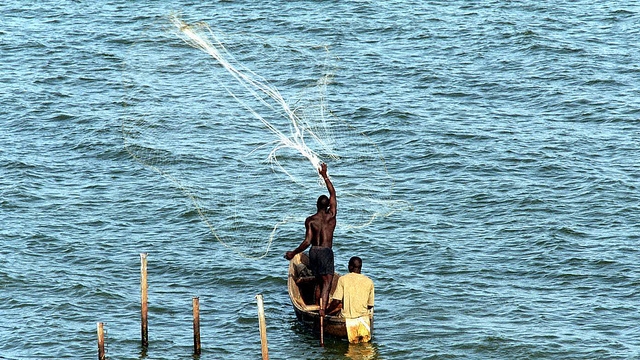
Why you need to think twice about responding to this call for knowledge sharing papers
I recently noticed with great interest a call for papers on the JISC Knowledge Management Forum in regard to a forthcoming special issue of the journal Sustainability on the topic of “knowledge sharing and sustainable development.”
The role of knowledge management (KM) in sustainable development is a topic of considerable interest within the KM community, for example it was the focus of a significant recent MBRF webinar. Because of this interest, I was intending to widely promote the Sustainability call for papers, including posting the link into the Knowledge Management for Development (KM4Dev) community.
But a subsequent post from Joern Fischer on the Ideas for Sustainability blog stopped me in my tracks. Fischer is Professor for Sustainable Land Use at the Institute for Ecology, Leuphana University Luneberg. In the introduction to his post, which is reproduced in full below, he states that “I would like to share my personal opinion why not to work with this journal, not as an author, and not as an editor.”
I was quite surprised by the post, given that Sustainability is indexed in Web of Science, which is described as “the world’s most trusted publisher-independent global citation database.” Because of this, the idea that Sustainability could be anything other than a reputable journal had never entered my thinking, and consistent with this, I have summarised KM articles from this journal here in RealKM Magazine.
The practices described below by Fischer – that is, bombarding academics with spam emails and accepting almost all submissions – sound more like the University Affairs description of a predatory journal than what would be expected from a high-quality academic publisher. However, this University Affairs article reveals that the publisher of Sustainability, the Multidisciplinary Digital Publishing Institute (MDPI), has been embroiled in a number of controversies including having previously been on Beall’s list of potential predatory scholarly open‑access publishers.
Although MDPI was removed from the list following a successful appeal, Beall remained critical of their approach, writing that “It is clear that MDPI sees peer review as merely a perfunctory step that publishers have to endure before publishing papers and accepting money from the authors.” Beall also implicates MDPI in his decision to shut down his list in 2017 following pressure from his university employer, stating that1 MDPI had “tried to be as annoying as possible to the university so that the officials would get so tired of the emails that they would silence me just to make them stop.”
In retrospect, I had missed a clear sign that MDPI was a potentially predatory publisher. The papers from Sustainability that I have summarised here in RealKM Magazine were KM papers published in a journal not with KM as a focus, but sustainability. Publishing articles not related to the journal focus is one of the characteristics of predatory journals identified in a 2017 study2.
While I still think that the papers from Sustainability that I have summarised here in RealKM Magazine are credible, I’ll certainly be thinking twice about using any further articles published by MDPI. I’ve already been doing this in regard to another publisher – IEEE – on the basis of a massive number of retractions and an unwillingness to disclose the reasons why.
You should do the same in regard to the call for papers for the forthcoming special issue of Sustainability on the topic of “knowledge sharing and sustainable development.” You should also consult our journal reviews series for information on KM journals that are worth your while.
Why not to publish in “Sustainability” (and you’re welcome to share this post)
By Joern Fischer
If you are a publishing academic in sustainability science, chances are high that you have been approached by the journal “Sustainability” to lead a special issue. With this blog post, I would like to share my personal opinion why not to work with this journal, not as an author, and not as an editor.
Sustainability is a journal that specialises in publishing special issues. To set up those special issues, it approaches authors of other recent papers, asking them if they might like to consider a special issue on a particular topic. For example, over the years, I have received invitations (among others) to contribute work for special issues on “Sustainability and Institutional Change”, “Landscape and Sustainability”, “Ecosystem Function and Land Use Change”, “Sustainable Landscape Management”, “Sustainable Futures”, “Integrated Landscape Governance for Food Security”, “Sustainable Multifunctional Landscapes” or “What is Sustainability? Examining Faux Sustainability”.
If you do accept to guest edit a special issue, you become one of now more than 1800 editorial board members (!). (I won’t link this to the journal’s website, but you can find that information easily on the journal website.) Hardly much of an achievement or distinction, given the predatory process with which the journal recruits people who are willing to run special issues.
That’s all not very uplifting, and many of us have known of this shady process for some time. But the situation appears to be getting worse, bordering on entirely non-sensical invitation emails.
One colleague of mine received the following statement:
“We recently invited you to serve as Guest Editor in Sustainability for the Special Issue “Sustainability Journal”. Please let us know whether or not you are interested, and if you have any further questions.“
Another person received this:
“Sustainability has launched a new position—Topic Editor.
Given your impressive expertise, we would like to invite you … The main responsibilities of Topic Editors are as follows:
- Promoting the journal during conferences (adding 1–2 slides into your presentation, distributing flyers, recommending the journal to your colleagues, etc.);
- Providing support for the Special Issues on topics related to your expertise or when the Guest Editor(s) is not available, including SI promotion via social media, pre-checking new submissions, making decisions, and giving advice on some scientific cases.
Benefits:
- We are glad to publish a paper of the Topic Editors with a special discount …“
Please take these excerpts as examples of the kinds of emails that come from this journal. YES, it’s easy to get stuff published there (I don’t know of anything ever having got rejected, in fact). YES, it has an impact factor. And YES, I’ve even co-authored one paper in this journal myself. But seriously, if we want to advance credible science on sustainability, then clearly not like this.
In case anyone from the Web of Science happens to be reading this blog: please review whether this journal and other similar ones really deserve an impact factor.
It is not my intention to say that all else is working well in the publishing business. I simply chose to share some basic facts and excerpts from recent emails by the journal, which for most of us, will make it self-evident that this is not a journal that ought to be supported in any way that might boost its credibility.
Header image source: Deposit Photos.
References:
- Beall, J. (2017). What I learned from predatory publishers. Biochemia medica, 27(2), 273-278. ↩
- Shamseer, L., Moher, D., Maduekwe, O., Turner, L., Barbour, V., Burch, R., … & Shea, B. J. (2017). Potential predatory and legitimate biomedical journals: can you tell the difference? A cross-sectional comparison. BMC medicine, 15(1), 28. ↩
Also published on Medium.







I want to share my experience with you. I submitted my original and unpublished work to the MDPI Sustainability journal.
The paper has been submitted to the journal by me.
For no reason, the assistant editor mentioned that there is a conflict of interest and put an unreasonable delay on my paper.
After almost two weeks, the paper gone through the review process.
The paper has been revised by me two times.
One of the reviewers asked to remove a few of the references, which I did.
The paper got accepted.
The content of the paper has been thoroughly changed by the English Editing Department without my consent.
The English Editing Department said that I have to re-add the removed references, which I did.
The assistant editor said that she must contact again the reviewer and academic editor for approval of adding the references.
After almost 10 days, she came back to me and said that the academic editor mentioned that only one reference should be added, and the reviewer has forced to put his/her papers in the references section, which all were irrelevant to the topic of this paper.
I, as the author, have the right to accept or reject references suggested by the reviewer to be included in the paper. I rejected adding the references suggested by the reviewer, which is common practice.
The assistant editor suggested withdrawing the paper, which I did.
The assistant editor did NOT process the paper withdrawal, and the paper was still with the editorial office for no reason.
I had the right to submit a paper that has been withdrawn to the same or different journal. In that case, a new academic editor and reviewers would be assigned to review the paper. I submitted the paper 24 hours after withdrawal.
The newly submitted paper has been withdrawn again by the editorial office without providing any reason.
I have been waiting for more than a month to get to know about the final decision on my paper which was submitted ~2.5 months ago.
I do not need to remind you that the guest editor has no vote/right to force me to add or remove references. But in my case, he/she did that. You can clearly see how unlawful, unethical, and unprofessional acts have been made all by the MDPI team. I checked the Committee on Publication Ethics and it is clearly indicated that as long the author ensures that he/she does not end up excessively self-citing, self-citation would be absolutely ethical. In addition, when the references are 100% relevant, I don’t think, I have to be obligated to cite irrelevant papers suggested by the reviewer. Indeed, the number of references is high enough that self-citation can be disregarded. Hence, the ethical line had been followed.
I submitted the paper on 2020-12-10 at 22:15:22 p.m., it has been accepted on 6 January 2021 and as of today, Feb. 23, 2021, the situation of my paper is vague and even, the editorial team does not reply to any email. All authors should be very very very careful before submitting papers to this journal. If a journal is not on the list of predatory journals, it does not mean that it is not a predatory one.
MDPI Sustainability journal is 100% predatory, there is no doubt. I have asked to withdraw my paper three times and they do not care at all. They have taken my paper hostage because I mentioned that I will surely share my experience with others.
I won’t submit my garbage papers to the MDPI Sustainability journal because my garbage papers worth more than their entire journal. Indeed, I won’t review any paper for them too.
The situation at Sustainability got exponentially worse in the last year; they had about 600 Special Issues in 2020 (which is already a monstrosity) but for 2021 they now have more than three *thousand* SIs open.
This is a coordinated effort on the part of MDPI over all of their journals.
I have collected data by scraping their website. The data are here: https://github.com/paolocrosetto/MDPI_special_issues
And there is a discussion on Twitter here: https://twitter.com/PaoloCrosetto/status/1370309130578186242?s=20
When you get a chance. Watch the TV show, The Wire. Its common practice for criminals to eliminate their competition by calling them crooks and pointing them out to the authorities. Beall did a good job of identifying predatory journals, but he also included many legitimate publishers and journals in his list, because open access publishing is a threat to the established highly predatory academic publishing business model. A billion-dollar business. These days, some amateur hacks are keeping Beall’s list alive and adding to it via anonymous “tips”. With no review process and no appeal process. Yes, there should be, and are, indexes and ways to separate legitimate research from predatory publishers, but knowledge and research should not be hoarded and sold only to the universities that pay exorbitant fees for access. The Internet has changed the world, including academic publishing, and you can’t unring the bell. The old publishing houses have now jumped on the bandwagon too. How much does it cost to publish your work in the open-access version of a top journal? After two years of wading through the crony system. Thousands. Who’s predatory?